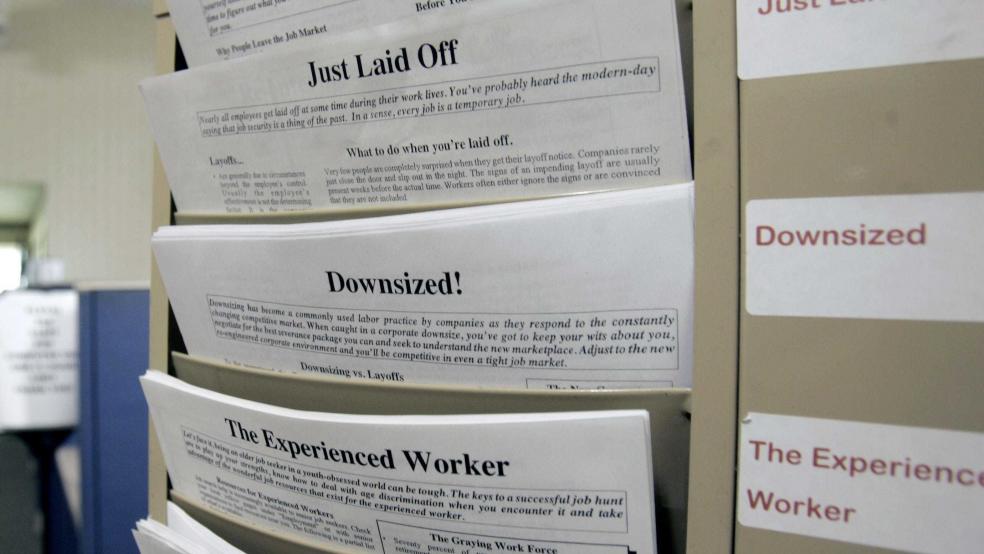At least $191 billion in pandemic unemployment benefits may have been paid out improperly, a federal watchdog told Congress on Wednesday at a House Ways and Means Committee oversight hearing titled “The Greatest Theft of Taxpayer Dollars: Unchecked Unemployment Fraud.”
The new total for wrongful payments is nearly $30 billion higher than a previous rough estimate of $163 billion. The updated number is based on applying the Labor Department’s latest estimate of the improper payment rate for the unemployment insurance program overall — 21.52%, up from 18.71% last year — to the $888 billion in total federal and state unemployment benefits paid during the pandemic.
Larry D. Turner, the inspector general of the Labor Department, told the House Ways and Means panel Wednesday that the improper payment rate for pandemic unemployment programs was likely higher than 21.52%. If so, that would mean that the improper payments could well total more than $200 billion —and while improper payments include overpayments and underpayments, intentional and unintentional, Turner said that a “significant portion” of the total is attributable to fraud.
Why it matters: The unemployment insurance program has some of the highest improper payment rates across the federal government, with estimates topping 10% for 15 of the last 19 years, according to Turner’s testimony.
“The unemployment system is particularly vulnerable because it is administered jointly by individual states and the federal government, resulting in a patchwork of rules and — in many states — outmoded technology that got overwhelmed during the heights of the pandemic,” Politico’s Nick Niedzwiadek notes.
The emergency unemployment programs enacted during the pandemic were particularly prone to abuse as lawmakers in both parties opted to impose fewer safeguards as they sought to quickly pump money into the economy to prevent a sharper downturn.
“Their efforts — signed into law starting under President Donald Trump — at one point added an extra $600 to workers’ weekly checks and provided new benefits to those who previously would not have qualified for federal help,” The Washington Post’s Tony Romm writes. “The money helped rescue the economy from the worst crisis since the Great Depression. But it also invited an unprecedented wave of theft and abuse, as criminals seized on the government’s generosity — and its race to disburse aid — to bilk state and federal agencies for massive sums.”
House Republicans, newly in the majority, are pledging to ramp up oversight of such programs. Jason Smith (R-MO), chairman of the Ways and Means Committee, pointed Wednesday to varying estimates of pandemic unemployment fraud.
“The range of estimates alone is sufficient reason for today’s hearing,” he said in prepared remarks. “ID.me, an identity verification company hired by many states, estimated an astounding $400 billion in fraud. That suggests thieves may have stolen almost half of the $878 billion taxpayers spent on unemployment insurance. The White House itself acknowledged that tens of billions were made in improper payments. They estimate $104 billion lost. More recently, the Government Accountability Office released its own report, making an early estimate that at least $60 billion went to criminals.”
What’s next: Republicans are looking to score political points with their hearings, charging that Democrats have been lax in their oversight, but in his State of the Union address Tuesday night, President Biden also pledged to give federal watchdogs more power. “Now, let’s triple the anti-fraud strike force going after these criminals, double the statute of limitations on these crimes and crack down on identity fraud by criminal syndicates stealing billions of dollars, billions of dollars, from the American people,” he said. “The data shows that for every dollar we put into fighting fraud, the taxpayers get back at least 10 times as much.”
Whether Congress will provide more funding for watchdogs to pursue such fraud cases is still unclear — but, as the Post’s Romm points out, many such requests have gone unheeded so far.
The bottom line: We still don’t know just how much Covid aid was lost to fraud, but the projections keep growing larger. Gene L. Dodaro, the comptroller general of the United States and head of the Government Accountability Office, emphasized that his agency’s estimate of $60 billion in pandemic unemployment insurance fraud was on the low end and that an estimate of the high end would be ready this summer.





